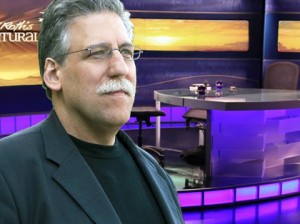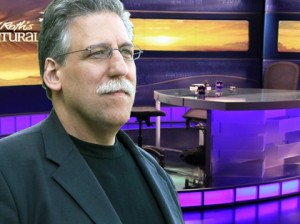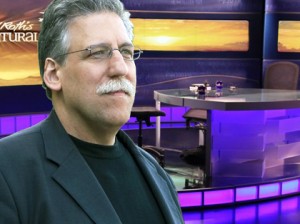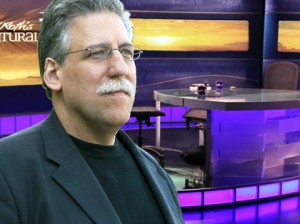Sid: One of the tools that’s going to help Christians understand Jews, and Jews understand Jesus is the debate that we recently had between, as far as I’m concerned the most well known foremost Rabbi in America Orthodox Jewish Rabbi Shmuley Boteach, and the foremost and the best Messianic Jewish scholar in America Dr. Michael Brown. The two of them went head to head and who is the real kosher Jesus. And a question that many Christians don’t have a clue about and many Jewish people don’t have a clue about is “What happens to a Jewish person when they die from a rabbinic viewpoint.” Let’s see what Rabbi Shmuley Boteach had to say.
Rabbi Shmuley Boteach Excerpt: Their soul could go to this place of Gahanna for up to twelve months, is why we say the mourner prayer the caddish for eleven months. If you did it for twelve you’re saying, “Wow that was the worst person ever.” If you do it for eleven you’re showing that they had some redeeming graces. The vast majority go into a place called Heaven until such time as the resurrection of the dead will bring their soul into a body where we will live eternally in a perfected state here on this earth.
Sid: And what happens to a non Jew that dies?
Rabbi Shmuley Boteach Excerpt: A non Jew who lives a righteous life goes to the same place as Jews, and the Jews have always believed that. Well before any kind of interfaith dialog began you do not have to be a Jew to be saved, we do not claim an exclusivity, or copyright on truth, we believe that all are God’s children.
Sid: Dr. Brown did I understand him right, the worst that happens to a Jewish person when they die is they suffer for eleven or twelve months. By the way, I asked the Rabbi, “What is the suffering?” The suffering is “Well, you see all the ways you have hurt other people throughout your whole life.” That’s sure a different view of the suffering I see about hell. The worst that happens is you live a horrible life like maybe an Adolph Hitler, and in twelve months after seeing all the bad things you did then you got to the same place that the righteous Jews go to. Did I understand that right?
Michael: Oh, you did, you can argue that in the first century there were Jews who believe that there was eternal punishment, and there are Talmudic traditions that speak of the totally wicked person goes down means to hell and never comes up. The totally righteous person goes straight up and everybody else which is a vast majority of the human race they go down for a little while and they come up. Well that they go down for a little while and come up is basically what traditional Judaism where Judaism as a whole embraces now. So the concept is the very worse person would suffer for a year, but no one is that bad so eleven months. That’s why you pray the mourners kahdish if your family member, like you did for your dad. If a family member dies, or your dad dies or something you go to the synagogue.
Sid: My dad use to believe that if I would do that for him he wouldn’t have to spend as many months suffering.
Michael: Yeah, it would help them out, it’s not exactly like that, but it’s similar to what Catholics believe about Purgatory, and pray for the dead and so on. Here’s the idea, it’s a great concept I’d love it if it was true, wonderful.
Sid: Everyone would become a Jew.
Michael: Wonderful if true, but where is that written, what’s the foundation for it? What do we do with Daniel 12:2 which is in the Hebrew Scriptures that says “Many who sleep in the dust of the earth?” Not meaning a majority but many meaning lots and lots and lots of people. “Many who sleep in the dust of the earth will rise; some to everlasting life and some to everlasting shame and contempt.” Number one there’s no middle ground in the Torah there was blessing or cursing there is no middle ground. In the Proverbs there is the righteous and wicked there is no middle ground so that’s the first thing. Everybody rises, people go one place or the other and it’s permanent. Whatever happens is permanent and irreversible, and you can’t change it. And even the idea of some of the suffering is that you feel guilt for what you did. I’m sure there’s guilt, guilt is one of the most horrific things, but there’s more than that, we suffer the judgment of God, we suffer the punishment of our sins. And Sid our sins are worse than we realize, human beings are more guilty in God’s sight than we realize. According to the Torah in Genesis 8 the reason God has not wiped out the earth again with a flood is not because we have improved but because our wickedness is such as a human race that He’d have to wipe us out all the time. So He said, “I’m never going to do that again because man’s thoughts are only evil continually from the days of his youth.” The fact of the matter is that we receive mercy from God all the time and don’t even know it. If we reject the ultimate mercy, Messiah’s death on our behalf, Messiah taking our sins, Messiah paying for our sins, if we reject that Sid we’re lost. What are we going to do stand before God one day and say “Well, I was pretty good, I didn’t commit adultery in my mind as much as the next guy; I didn’t hate my heart as much as the next guy; I wasn’t as selfish as the next guy.” No, no we’re guilty and you can drown in twenty feet of water or you can drown in a hundred feet of water either way you are still going to drown. If you reject God’s mercy we’re lost and there’s no way out and there’s no turning back and there’s no exit cart, zero.
Sid: You know Mike to me, the strongest apologetic that there is, that Jesus is the Messiah. I had an opportunity at this debate, because it was in context, I shared about my Orthodox Jewish Father, and I went to my father and the last thing in the world that he wanted to believe was that Jesus is the Messiah; the last thing that he wanted to believe. I read the 53rd chapter of Isaiah from a Tanach, Jewish scriptures that my Orthodox Rabbi inscribed something to me in the cover of it, and my Father said, “Stop, your reading about Jesus.” And I had a chance to show Rabbi Boteach that Tanach and he looked at it when you see the debate and you will see it…I had the opportunity to read most of Isaiah 53. You did a PhD on the 53rd chapter of Isaiah in reference to healing. Tell me the strongest reason in Isaiah 53 that it speaks of Jesus and not some of the apologetics’ that it’s really speaking about the Jewish people or something like that.
Michael: Really Sid from the beginning to end of the text it’s the strongest apologetic and we were both pleased that Rabbi Shmuley respectfully let you share all that because you were hosting a debate and he let you share all of that. He had his reaction, but you talk about a powerful intense moment, boy it was.
Sid: You know I felt like the Holy Spirit showed me how I’d be able to get away with it and the Holy Spirit was right but go ahead.
Michael: Yeah, and he had his reaction to it and the audience heard the whole thing and it was quite amazing. But you start in Isaiah 52:13 going on 53:12, and it speaks of one whose going to be so highly exalted that the Rabbis’ said He’s going to be more exalted than Abraham, Moses, or the angels. But first He’s going to be terribly disfigured and not even recognized as a human being He’s so disfigured.
Sid: Excuse me this was written 800 – 8,000 years before Jesus came to earth you know, this wasn’t written after the fact.
Michael: No, no Sid only 700.
Sid: Okay.
Michael: That’s the point, 700 hundreds and hundreds of years before Jesus who could have imagined this so He’s going to be highly exalted, but He’s going to suffer terribly first and the message about Him when kings hear it, “Ahhh, I’ve never heard of such a thing.” And then it unfolds, “Who believes our report?” Who believes this message we’re carrying? He didn’t grown up significant, He’s like a nobody, Nazareth? Carpenters Son? That’s what they thought He lives in Nazareth, it’s nowhere land, just an obscure Guy. He grows up nothing special about Him. But then here’s what happens He ends up sitting in for us, He ends up taking our place. We think He’s dying because He’s guilty, here’s what the text says. We think He’s dying because He’s guilty, only afterwards do we realize, “Uhh, it was our sicknesses He was carrying, it was our sins He was baring, and by His wounds at the cost of his wounds there was healing for us.” And yes I did my PhD, and the Hebrew word for healing and it’s ancient Near Eastern context, restoration, restoration for the whole person at the cost of His wounds. And then it goes on to describe how He’s taken away the prisoner to the judgment how He goes as a lamb to the slaughter. And then it speaks of Him not only dying a violent death, the Hebrew is in the plural, there it’s violent death, but it even speaks of His grave and He ends up He’s appointed with the wicked but His tomb was with the rich. But it’s in detail the way it unfolds and then He’s going to see light, see the light of life as it reads in the Dead Sea Scrolls. In other words He’s going to resurrect, He’s going to have a future, He’s going to make Himself a guilt offering; He is going to make many righteous and God is going to reward Him because He interceded for sinners and was numbered with the transgressors. It is the clearest presentation of the gospel through a Jewish narrative anywhere in the entire Bible, and the revelation is we didn’t understand what was happening? Who does that speak of? Rabbis, sincere Rabbis, devoted Jews around the world.
Sid: It starts out with “Who will believe the report of the prophets?” I mean it’s even saying today there will be those that will not believe these straight forward reports of the prophets.
Michael: And then people say, “Well where, count your missionaries, rabbis say where does it say we have to believe? Well, Isaiah 53:1 “Me heh-ehmee l’shmu-ahtaynu”, “Whose believed our report?” This is the report we are now giving, who has believed it? And you have Zachariah 12:10 to bring in another text “v’hebaytu aylai et asher dokru” “that the Jewish people living in Jerusalem will look to one that they pierced.” The day will come when eyes of understanding will be open on a national level. But it says in 2nd Corinthians 3:1 “Any one,” (any Jewish person) turns to the Lord the veil is lifted.” All of us Jew and Gentile before we came to faith had a veil over our eyes, but there’s a specific promise when the Jewish people turn to the Lord the veil is lifted.
Sid: But there have been times in history that the veil has lifted on multitudes of Jewish people.
Michael: It’s lifting now Sid.
Sid: And especially in Israel and if Jesus hasn’t been your Messiah and Lord, repent because He’s coming back soon. Tell Him your sorry, believe the blood of Jesus is strong enough to wash away your sins. Ask Him to live inside of you and become your Lord…




